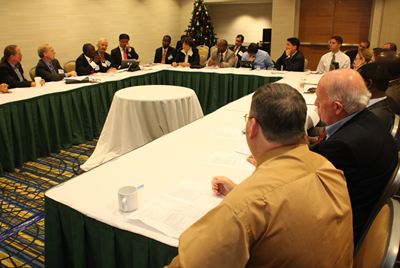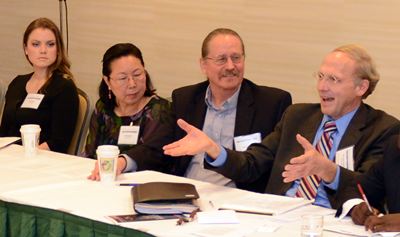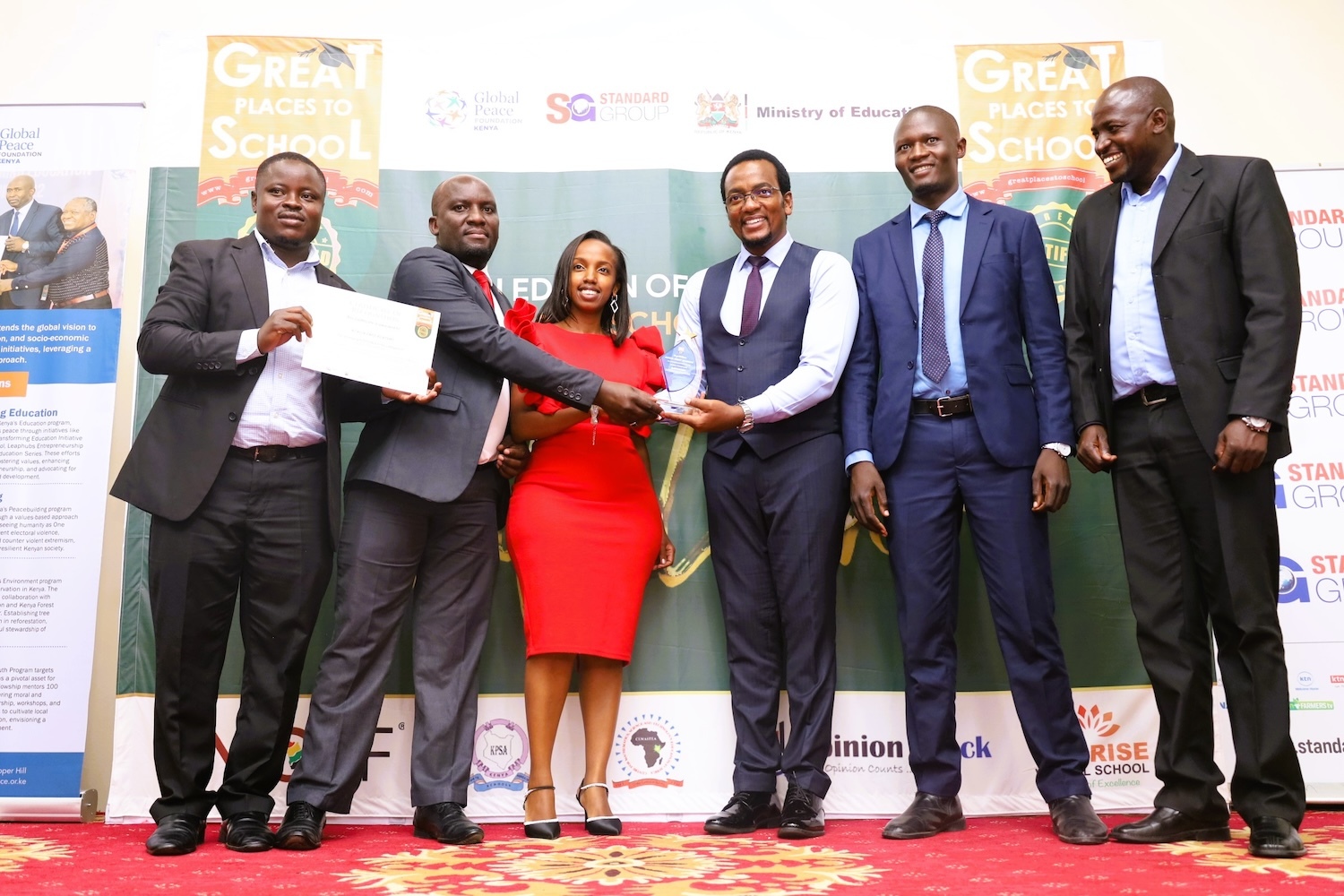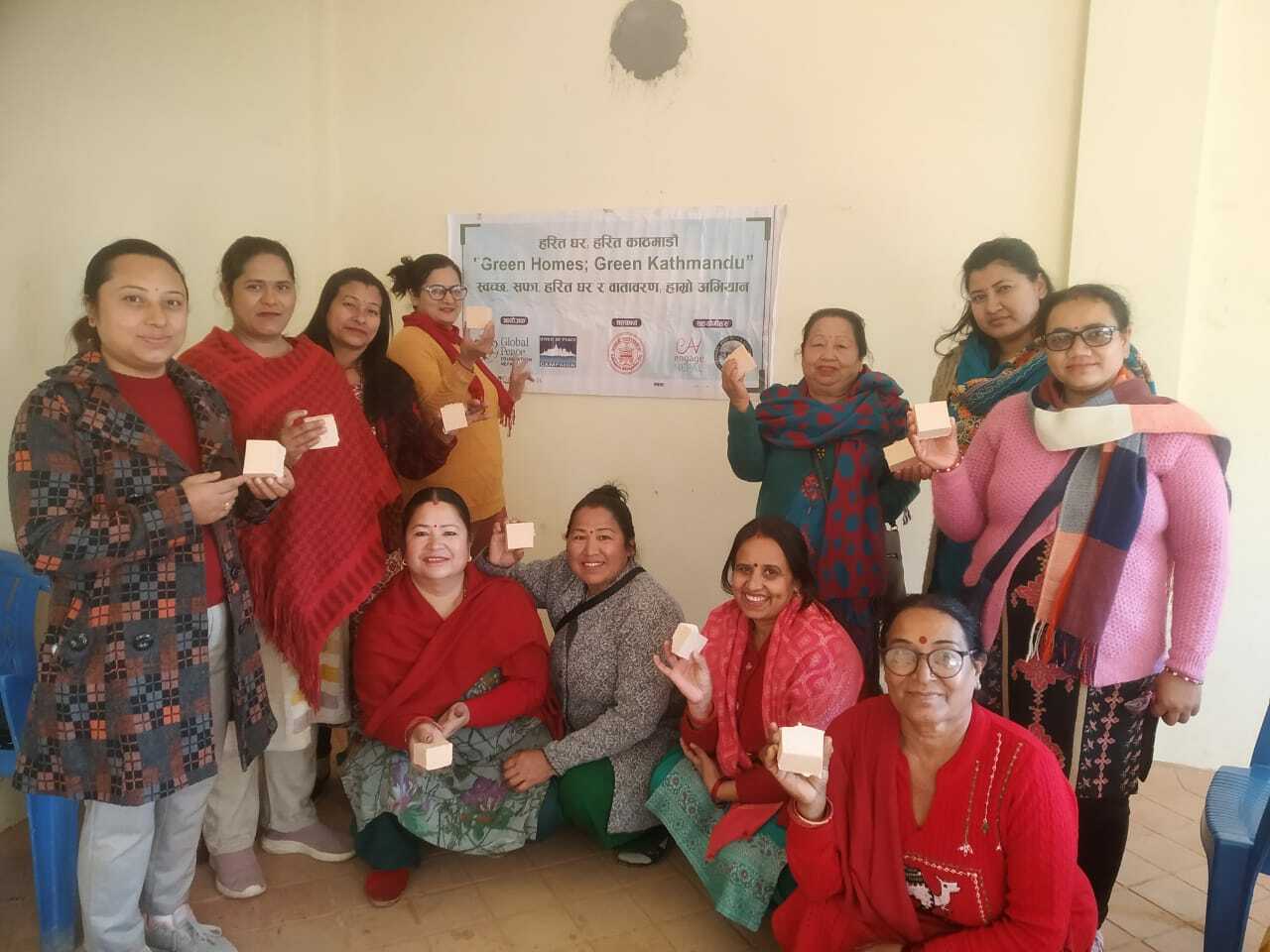
The Roundtable, “Envisioning Global Peace Service Corps Strategies.”
Leaders of international service organizations, corporate and United Nations representatives, and faith leaders examined regional and global models for effective multi-sector collaboration for advancing peace and a culture of service at the 2012 Global Peace Convention in Atlanta, Georgia, U.S.A. on December 1.
Moderator David Caprara, Vice President for Strategic Partnerships for the Global Peace Foundation and Nonresident Fellow of Brookings Initiative on International Volunteering and Service, opened the roundtable discussion by noting the important role of social media and need for a movement of youth in building a world of connectivity and culture of volunteerism.
Panelists said young people had to take the lead in integrating the work of service organizations in their communities. For international service initiatives, interpersonal communication is especially important, because meeting and knowing people creates a connection and bond between the volunteer and the community that is richer and more enduring than remote communications and media reports.
Panelists said a main priority needs to be the impact on the receiving community. Through “community driven development” the community can see and believe in the value of the program and have a stake in outcomes. Simply sending volunteers from a host country is no longer a sustainable model; community driven development, instead, is about reciprocal benefits of both volunteer and beneficiary.

Moderator David Caprara, Vice President for Strategic Partnerships for the Global Peace Foundation, speaking at the Roundtable “Envisioning Global Peace Service Corps Strategies.”
Other speakers spoke about the need to engage local volunteers to build capacity and as an entry point to encouraging a lifetime of service. Companies are now investing in new types of service-driven programs through “Corporate Service Corps,” which brings employees together to work on a project within an emerging market, strengthening team building, and raise cultural awareness.
A comprehensive and successful approach will engage not just people who want to serve but educators, scientists, business leaders and other professionals who can participate in reciprocal exchanges, bringing members from communities being served to host countries and turning volunteers into advocates of service, both abroad and at home.
The Roundtable, “Envisioning Global Peace Service Corps Strategies,” was held during the four day 2012 Global Peace Convention “Moral and Innovative Leadership: Building Strong Families, Healthy Societies, and a Global Culture of Peace,” which concluded on December 2.
Mr. Caprara was joined by panelists Dr. Markandey Rai, Global Parliamentarians Chief, United Nations Habitat, Nairobi, Kenya; Dr. Tuesday Gichuki, Director, Africa Alliance on Volunteer Action for Peace and Development, Kenya National Volunteer Network Trust; Helen Claire Sievers, President, World Teach and Building Bridges Coalition, USA; Gared Jones, Vice President, International Service, Points of Light Institute, USA; Tjuan Dogan, Manager, IBM Corporate Citizenship & Corporate Affairs, USA; David Yoo, Director, All Lights Village Project and President, GPF Korea; Melissa Golladay, Director of Professional Leadership Exchanges and Youth Engagement Programs, Partners of Americas, USA; Dr. Charles Phillips, President, Global Peace Connect/Service for Peace, USA; Kenshu Aoki, USA Director, Global Peace Youth Corps, USA; Rev. Mark Farr, Director, Center for Multi-Faith Partnerships, Global Peace Foundation, USA.
Keely Beck is a graduate student at Emory University in Atlanta.



